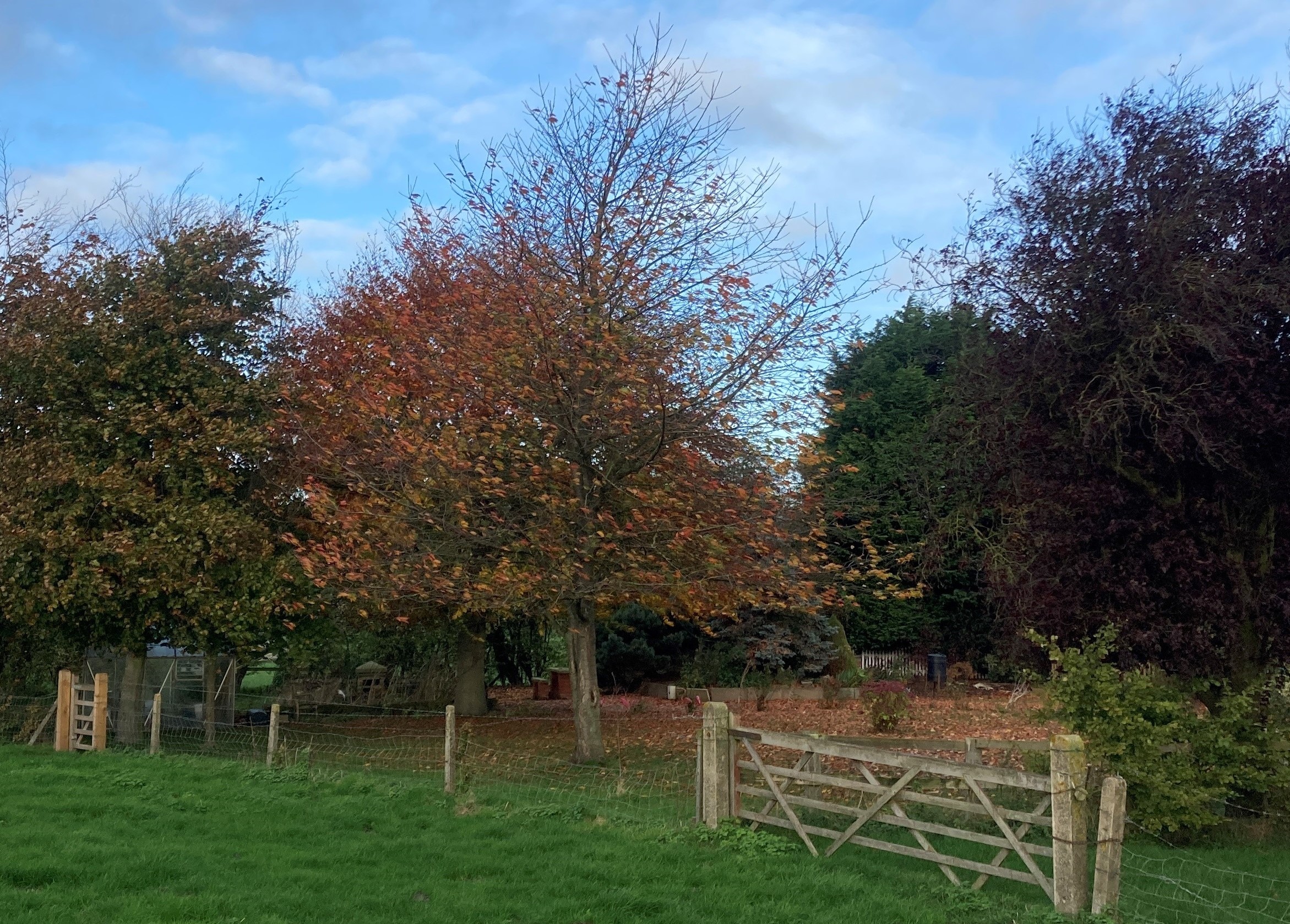Embarking on a peer research approach
Table of contents
Advice for research managers

You wouldn’t know it but this tree near my house is astounding in autumn – when I glanced up mid-run one day, I was confronted by the utter brilliance of the red leaves out in force and had to stop still for a moment. By the time I got round to taking the photo, I’d missed the opportunity to capture what was so breathtaking! The strength of colour had passed into more muted autumnal colours.
This got me thinking about seasonality, and how our approach at Migration Yorkshire to working with migrant researchers is developing over time (according to our context, hopes, constraints and learning). The contribution of our researchers looks different in each ‘season’ or stage of our project: from the spring of design and hopeful ideas to the winter’s hunkering down to write up and celebrating the year passed. As each new project or ‘year’ begins we build on what came before it – adding rings to the trunk, new branches and leaves, as we say farewell to some elements.
Colleagues not subjects: Advice for research managers who want to involve migrants in running a research project
Migration Yorkshire’s research team includes researchers with experience of migrating to the UK and coming to live in Yorkshire and Humber. Pip Tyler, lead for research, policy and statistics at Migration Yorkshire, explains how this has come to pass and offers some pointers for research managers who are looking to do something similar.
Passing 'Go'
It feels unrealistic to get every decision relating to working with migrant researchers right. I’m certain there are some issues that haven’t occurred to me to reflect upon. But I’m confident that taking the decision to design a research project like ours and to genuinely seek to do it well is better than not doing one, so that’s one of the easiest choices and allows you to get started - or ‘pass go’ (in Monopoly terms).
Why employ migrant researchers?
I’m more comfortable writing about host communities because I belong to one. I feel less at ease writing about the perspectives and experiences of people who were born outside the UK and now live in Yorkshire. Don’t get me wrong – researchers should be able to collect, analyse and write about data that isn’t in their realm of experience. But at times I felt there was something missing in my work at MY, no satisfying way to validate or confirm my conclusions from the participant perspective.
Further, as an organisation this approach improves us. We try to lead by example, or practice what we preach. If we encourage other organisations to listen to the voices of migrants, to allow migrants to be part of setting our agenda for integration, then we ought to do so ourselves.
Critical for me, we know from research and practice that a majority of skilled migrants struggle to have their expertise recognised in the UK, are routinely underemployed, and can lack UK work experience to reassure potential employers. Migration Yorkshire can offer the opportunity to gain some skilled work experience for researchers and for those who would like to explore research as a career path – hoping to make a tangible difference directly to some individuals as well as trying to change less concrete things like structures and strategy across organisations.
Finally, my colleagues and I wanted to experience being part of a more diverse team. We needed to create opportunities designed specifically to attract people who don’t look or sound like everyone else in the team and bring different experiences to the table.
What should research managers consider at the planning stage?
To date we’ve run a couple of projects with peer researchers and community researchers who have an interest in research and have come to live in the UK from another country, including our South Yorkshire Roma project and in our current Refugee Integration Yorkshire and Humber project. We haven’t cracked it yet – but here are some things we’ve learned along the way and practical things to deliberate upon if you’re planning a project involving migrant researchers too.
Two final thoughts: One, find a peer group yourself! It can really help to talk through these issues with others who are or have grappled with such questions – or have faced things you haven’t encountered yet. As Migration Yorkshire’s work with migrant researchers has continued and become more widely known, we’ve been approached by a number of researchers and practitioners who are interested in what we’re doing and want to pick our brains for ideas. We haven’t got all the answers, but we’ll share our learning and reflections. Two, once you have employed migrant researchers, find different ways to hear their reflections too as you develop your programme, cognisant of the likely power imbalance between you.
